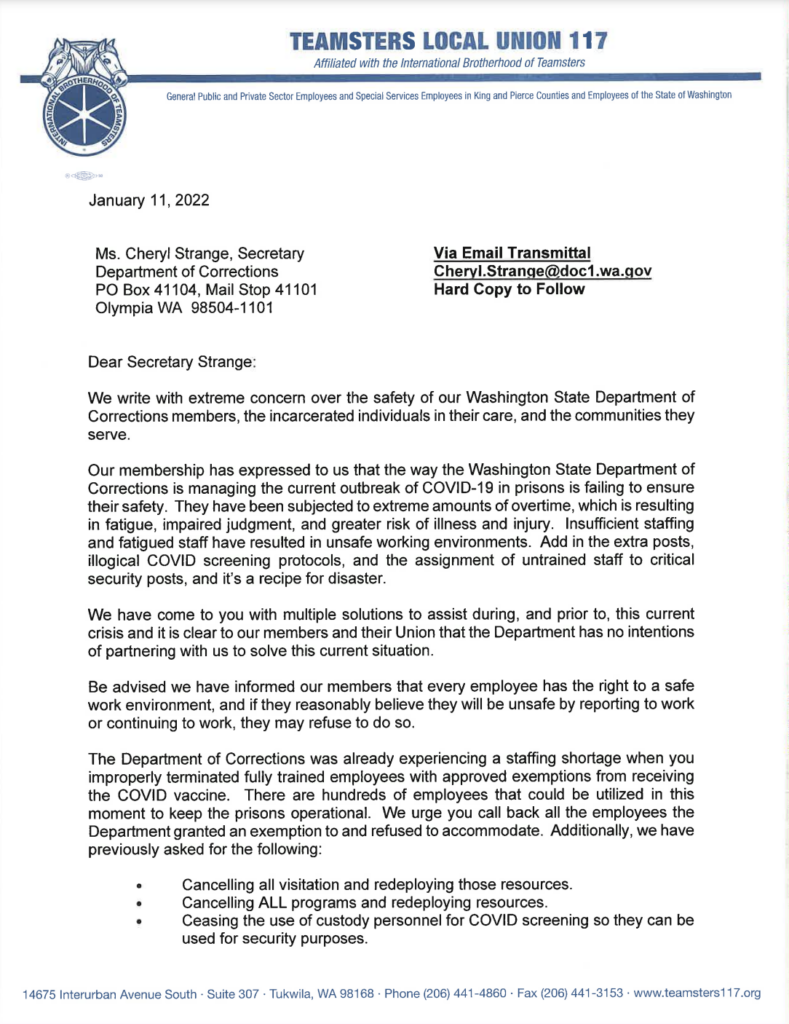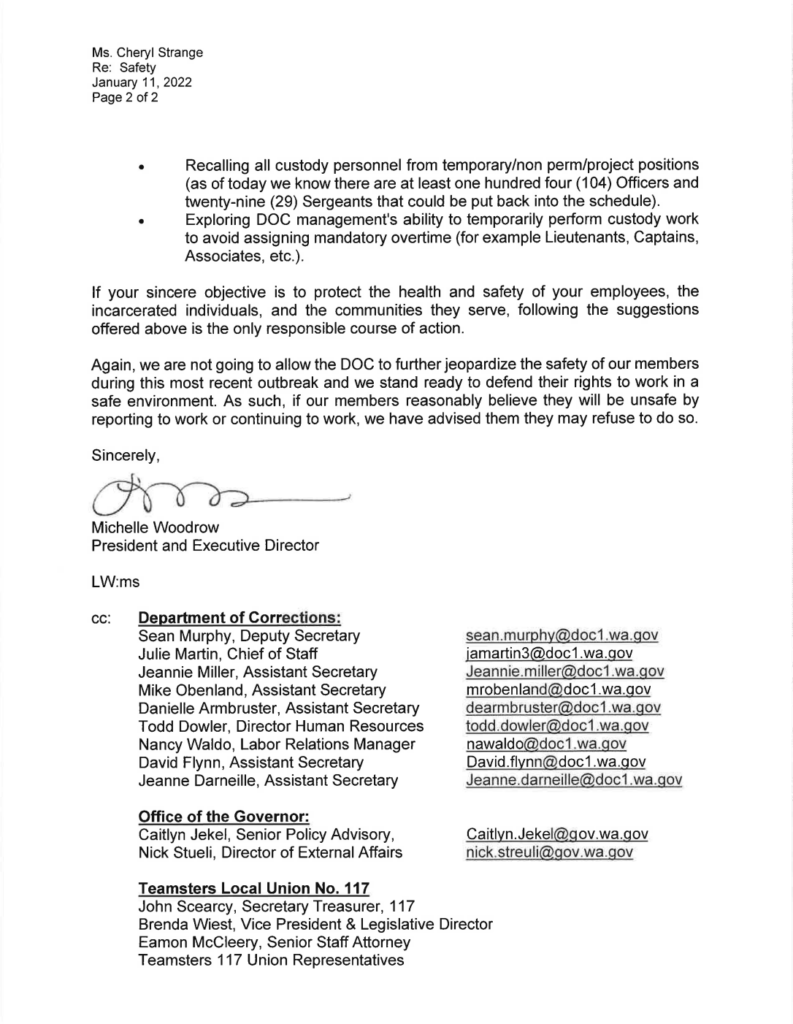Around 30 years ago, Washington State Department of Corrections (WDOC) took an unusual approach to the way it allocated staff resources. Rather than the model currently used by the other 49 state prison systems, which is to assign guards and supervisors according to each facility’s level of need, the WDOC Custody Staffing Model (CSM) standardized them to be evenly distributed across all facilities. The model is still used today, and over the course of the pandemic has become increasingly dangerous for both prisoners and staff.
The first problem, of course, is that prisons are not all the same. Some of WDOC’s 12 facilities house 10 times the number of prisoners as other ones. Two facilities are designated for women. Several have opened in the 28 years I’ve been incarcerated here. Two are over a century old.
The second problem is that the CSM has remained almost completely unchanged in the decades since its inception, during which time WDOC has more than doubled the number of prisoners.
In 2019, an independent audit of the CSM from CGL Companies found that in 2018, WDOC paid 745,000 hours of overtime. CGL characterized this as “excessive for a system of this size and expensive,” noting that excessive overtime at this scale drove up stress, burnout, accidents and use of sick leave. Critically, the report showed that the scale of the problem suggested the CSM was underestimating the baseline level of staffing needed in the first place.
The CSM mandates staff schedules. Correctional officers (COs) can’t choose when they work and when they don’t. They have to take two extra shifts per week. There’s a rotation of which posts are up next for mandated overtime. If a CO is mandated to work from 6 am to 2 pm, and then at shift change no one shows up to replace them, they have to stay.
Teamsters Local Union No. 117, which represents approximately 6,000 COs, pushed WDOC for the audit and leveraged CGL’s report to challenge WDOC repeatedly about the ongoing staffing crisis.


On the one hand, once COVID-19 protocols prompted guards to quit en masse, the CSM made things very lucrative for the ones who remained. With some regularity, present-day COs can be heard talking about the new trucks they’re buying, even new houses that were previously out of their price range. On the other, most have become so exhausted that even the prospect of sudden wealth hasn’t been worth the tradeoff.
In late 2021, around 350 staff members either quit or were fired in response to vaccine mandates alone. The mandated schedules have been in place for decades, but before the pandemic there were enough people on payroll that everyone could trade the shifts they didn’t want. Once so many were gone that the remaining staff could no longer get around the mandated overtime, the atmosphere changed.
For a while, WDOC was even bringing in community corrections personnel to fill security positions, just to keep facilities operational. In Washington Corrections Center, almost all COs we saw come in around this time were young, inexperienced in correctional work, and had no idea what they were supposed to be doing in their new jobs.
New guards don’t know how their jobs work, and take out their frustration on prisoners who try to show them.
Writing up prisoners infractions meant risking COVID transmission, because it required those prisoners to report to a different part of the compound, and it also created an extra administrative burden on staff responsible for all the paperwork. So COs were told to stop writing up infractions. Without the ability to formally punish prisoners, they’d just scream at us instead.
None of us like the system we’re forced to live under, but without the necessary security measures and everything else falls apart. Prisoner-guard interactions became so tense that for months, all our lives were in danger at all times. WDOC declined Filter‘s request for comment on its staffing practices.
In February, WDOC started relaxing the mask mandates and other COVID precautions, in anticipation of them being formally removed in April. With movement restrictions lifted, prisoners could once again do things like go to church, go out to the yard, attend recreational programming—if those things weren’t still being shut down about twice a week, because the CSM required the guards at those posts be pulled away to fill higher-priority posts like the living units.
Around the same time, WDOC began a hiring spree. We now have many more guards, almost none of whom know what they’re doing because they were trained by the COVID-era guards who didn’t get the normal training that guards are meant to get. There are very few veterans left who have experienced correctional work in times of regular operations.
WDOC isn’t replacing or updating the CSM. It’s just moving things back to where they were before the pandemic.
In my living unit, the staff who do show up to work often lack the experience or the necessary support for even basic daily tasks, like emptying trashcans and stocking toilet paper. They are untrained and overscheduled. They don’t know how anything here works, and take out their frustration on prisoners who try to show them the ropes.
Guards are angry about the CSM forcing them to remain in dangerous situations. I empathize. But prisoners who have no power to protect themselves from underqualified, overworked and angry guards are in far greater danger.
The 2019 CGL report found that the positions most likely to be understaffed included public access, housing special populations, recreational programing and suicide watch.
WDOC isn’t fixing anything by hiring more staff, because it isn’t actually replacing or updating the CSM. It’s just moving things back to where they were before the pandemic, the exact same situation that prompted the CGL review.
The model is unsustainable, unpopular, expensive, dangerous and not used by any other state in the union. We already have a thorough review that concluded the CSM was a disaster and suggested a number of improvements. Seems a shame to waste it.
Top image via Washington State Department of Corrections. Inset document via Teamsters Local Union No. 117




